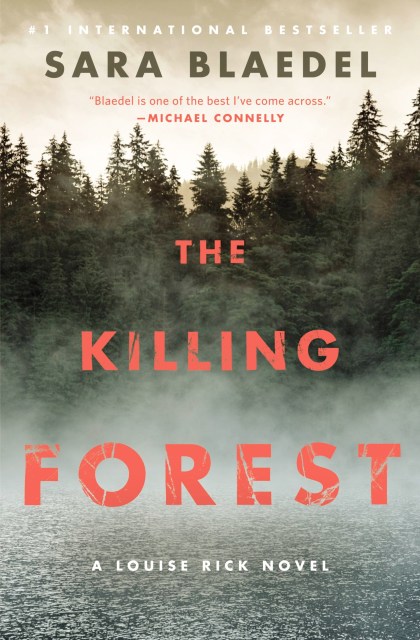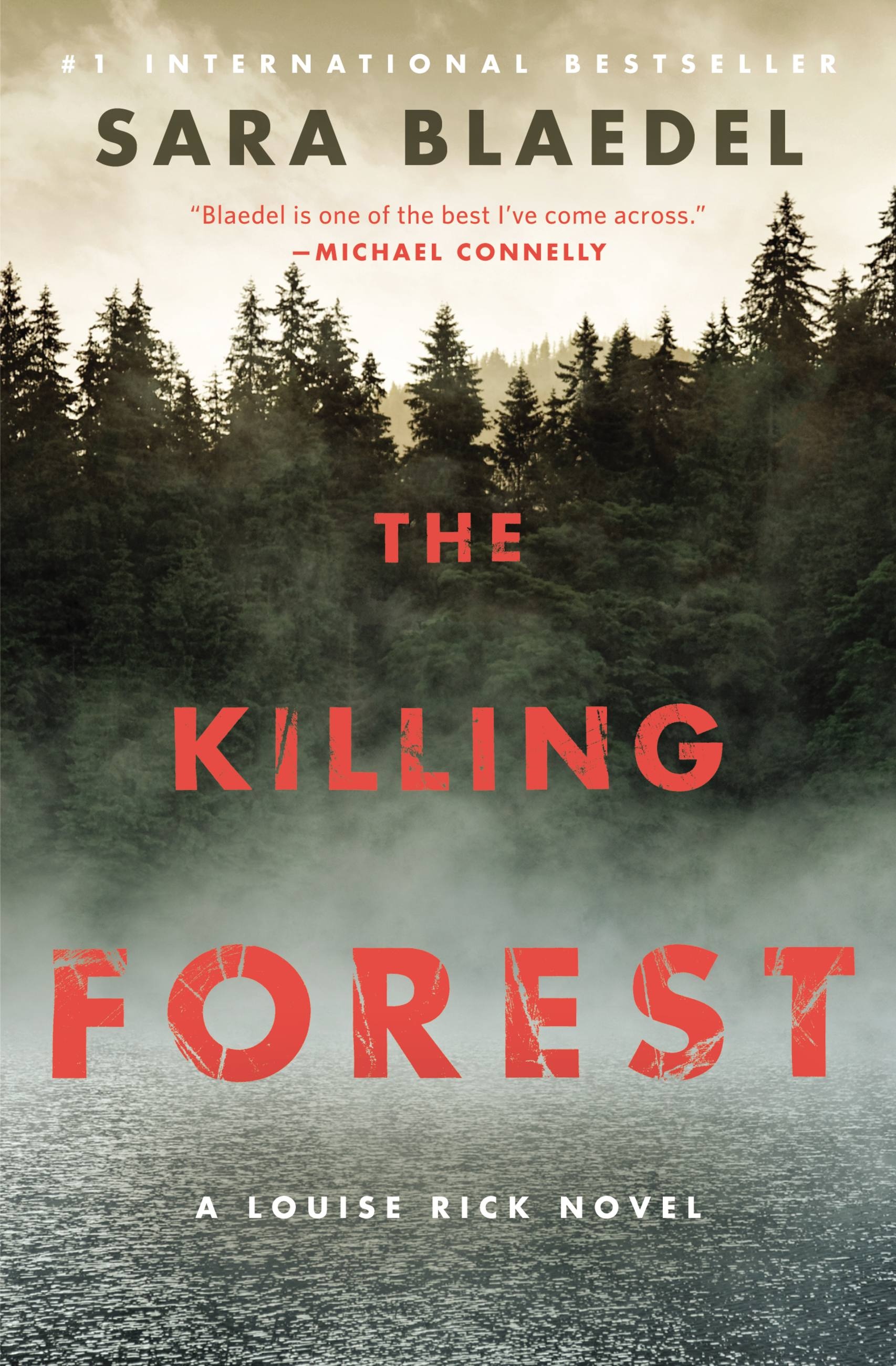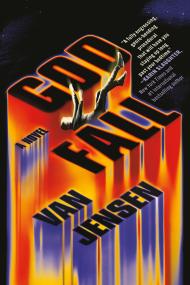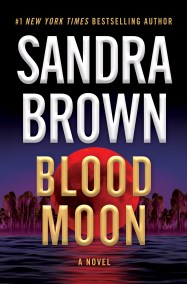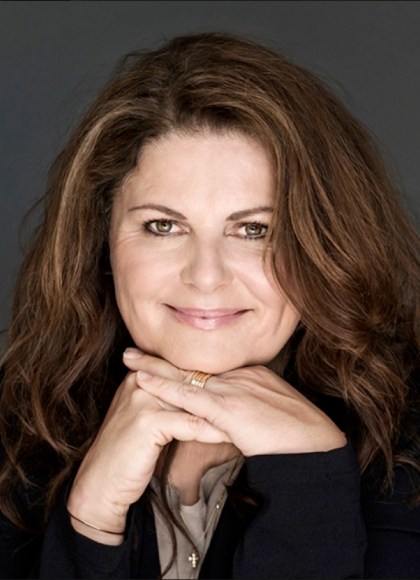By clicking “Accept,” you agree to the use of cookies and similar technologies on your device as set forth in our Cookie Policy and our Privacy Policy. Please note that certain cookies are essential for this website to function properly and do not require user consent to be deployed.
The Killing Forest
Contributors
By Sara Blaedel
Formats and Prices
- On Sale
- Oct 11, 2016
- Page Count
- 320 pages
- Publisher
- Grand Central Publishing
- ISBN-13
- 9781455581559
Price
$18.99Price
$24.99 CADFormat
Format:
- Trade Paperback $18.99 $24.99 CAD
- ebook $7.99 $9.99 CAD
- Audiobook Download (Unabridged)
This item is a preorder. Your payment method will be charged immediately, and the product is expected to ship on or around October 11, 2016. This date is subject to change due to shipping delays beyond our control.
Buy from Other Retailers:
Sara Blaedel, author of the #1 international bestseller The Forgotten Girls–which was roundly praised as “gripping” with “uncompromising realism” (Washington Post) and “tautly suspenseful” (BookPage)–returns with the thrilling next book in her series featuring police investigator Louise Rick.
Following an extended leave, Louise Rick returns to work at the Special Search Agency, an elite unit of the National Police Department. She’s assigned a case involving a fifteen-year-old who vanished a week earlier. When Louise realizes that the missing teenager is the son of a butcher from Hvalsoe, she seizes the opportunity to combine the search for the teen with her personal investigation of her boyfriend’s long-ago death . . .
Louise’s investigation takes her on a journey back through time. She reconnects with figures from her past, including Kim, the principal investigator at the Holbaek Police Department, her former in-laws, fanatic ancient religion believers, and her longtime close friend, journalist Camilla Lind. As she moves through the small town’s cramped network of deadly connections, Louise unearths toxic truths left unspoken and dangerous secrets.
“Crime-writer superstar Sara Blaedel’s great skill is in weaving a heartbreaking social history into an edge-of-your-chair thriller while at the same time creating a detective who’s as emotionally rich and real as a close friend.” — Oprah.com
“One of the best I’ve come across.” — Michael Connelly
“Sara Blaedel is a force to be reckoned with. She’s a remarkable crime writer who time and again delivers a solid, engaging story that any reader in the world can enjoy.” — Karin Slaughter
“Will push you to the edge of your seat [then] knock you right off….A smashing success.” — BookReporter
“Blaedel delivers another thrilling novel…Twists and turns will have readers on the edge of their seats waiting to see what happens next.” — RT Book Reviews
Following an extended leave, Louise Rick returns to work at the Special Search Agency, an elite unit of the National Police Department. She’s assigned a case involving a fifteen-year-old who vanished a week earlier. When Louise realizes that the missing teenager is the son of a butcher from Hvalsoe, she seizes the opportunity to combine the search for the teen with her personal investigation of her boyfriend’s long-ago death . . .
Louise’s investigation takes her on a journey back through time. She reconnects with figures from her past, including Kim, the principal investigator at the Holbaek Police Department, her former in-laws, fanatic ancient religion believers, and her longtime close friend, journalist Camilla Lind. As she moves through the small town’s cramped network of deadly connections, Louise unearths toxic truths left unspoken and dangerous secrets.
“Crime-writer superstar Sara Blaedel’s great skill is in weaving a heartbreaking social history into an edge-of-your-chair thriller while at the same time creating a detective who’s as emotionally rich and real as a close friend.” — Oprah.com
“One of the best I’ve come across.” — Michael Connelly
“Sara Blaedel is a force to be reckoned with. She’s a remarkable crime writer who time and again delivers a solid, engaging story that any reader in the world can enjoy.” — Karin Slaughter
“Will push you to the edge of your seat [then] knock you right off….A smashing success.” — BookReporter
“Blaedel delivers another thrilling novel…Twists and turns will have readers on the edge of their seats waiting to see what happens next.” — RT Book Reviews
Series:
-
"One of the best I've come across."Michael Connelly
-
"For readers who gorge on captivating characters and chilling suspense, THE FORGOTTEN GIRLS is a tantalizing treat. Enjoy yourself, America."Sandra Brown
-
"[THE FORGOTTEN GIRLS] is gripping when it depicts some horrific crimes...[An] uncompromising realism...distinguishes this novel at its best."Washington Post
-
"Tautly suspenseful and sociologically fascinating, THE FORGOTTEN GIRLS demonstrates yet again that the finest contemporary suspense fiction emanates from Europe's snowbound North."BookPage on The Forgotten Girls
-
"A sharp protagonist who wrestles with her own failings and fears, in a skillfully told story that is typically dark in the manner of Nordic crime fiction."Booklist on The Forgotten Girls
-
"Sara Blaedel is a force to be reckoned with. Everyone keeps talking about the 'trend' in crime writers--Scandinavian, German, Russian. Blaedel is no trend. She's a remarkable crime writer who time and again delivers a solid, engaging story that any reader in the world can enjoy."Karin Slaughter
-
"This is a standout book that will only solidify the author's well-respected standing in crime fiction. Blaedel drops clues that will leave readers guessing right up to the reveal. Each new lead opens an array of possibilities, and putting the book down became a feat this reviewer was unable to achieve. Based on the history of treating the disabled, the story is both horrifying and all-to-real. Even the villains have nuanced and sympathetic motives."RT Times on The Forgotten Girls (Top Pick)
-
"The Forgotten Girls is without doubt the best the author has delivered so far...strikingly well done....the chances are good that The Forgotten Girls will become your favorite crime novel for a long time to come."Børsen (Denmark)
-
"Sara Blædel is at the top of her game. Louise Rick is a character who will have readers coming back for more."Camilla Läckberg
Newsletter Signup
By clicking ‘Sign Up,’ I acknowledge that I have read and agree to Hachette Book Group’s Privacy Policy and Terms of Use
